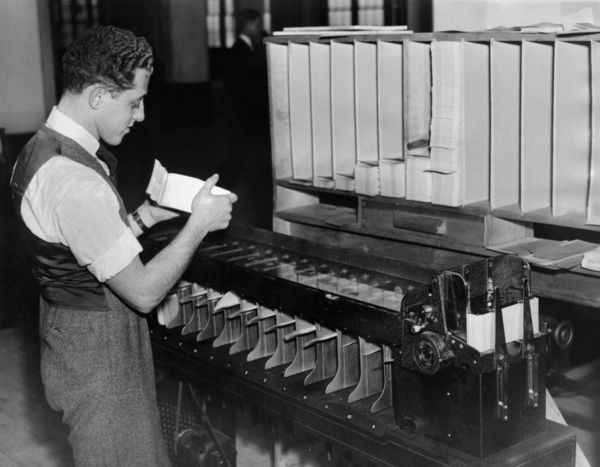
All Evidence Pointed This Way, So What Happened?
A 15-hour workweek was the future, one expert said nearly 90 years ago.
It was a prediction that very well could have come true that had a very logical hypothesis: with the rise of technology, people would become so productive that the traditional 40-hour workweek would dissolve.
The Atlantic covered this very topic in its recent article, Why Do Americans Work So Much?
Economist John Maynard Keynes wrote about his vision in the 1930s in an essay pointing to shorter time in the office and more free time over the next 100 years.
By the 1970s, Keynes' prediction was on track to ring true. The average workweek had fallen to 39 hours a week from 47 hours a week in 1930.
But then the trend halted, staying put at an average 40 hours a week for workers for the next half century.
Did we become workaholics in the last 50 years? Have we become more inefficient? Or are there other factors to consider why this prediction took a detour?
The Atlantic article highlighted the thinking of Harvard economist Benjamin M. Friedman, who posited about why a 15-hour workweek never came to be. Friedman studied why Keynes’ original predication didn’t come true.
- Our standard of living has increased enormously. The article points out our standard of living costs are anywhere from four to eight times as much as they were in 1930. These increased costs of everyday living have perpetuated the need for Americans to work long hours.
- Increased productivity from technology didn’t translate into more leisure time. The article speculates one reason is that people enjoy the social aspect of work, and place great value on that.
- Increased productivity didn’t benefit everyone. Keynes’ original theory made an assumption that turned out to not be true — that increased productivity from technology would result in less working time spread out evenly among everyone. Data shows the demand among low-wage workers is to work more, not less, because they need the money.
I’d like to add a fourth point into the mix that Keynes didn’t consider, even though he could of pointed to it had he listened to another expert from his time.
That person would be Eduard Spranger, who wrote Types of Men in 1928, which examined the common factors that motivate individuals. His research serves as the foundation of TTI Success Insights’ 12 Driving Forces™, which measures what drives a person to feel fulfilled in their lives and careers.
So, the fourth reason a shorter workweek was never fully embraced could be because it assumes that all people want to work less.
But if they are motivated, like Spranger’s research outlines, a long workweek might be fulfilling to them if they are working in their top motivators or driving forces.
Despite technological advances that have made our lives easier, the very possible reason we never let it translate to more leisure time is because of our own driving forces. As people become self-aware, the more likely they are to be in touch with what drives them.
And once they have that information about themselves, they’ll likely opt for a long week because they’ll love what they do.
Simply put, when you’re fulfilled by your top driving forces, the last thing you’ll be doing is counting your work hours.


